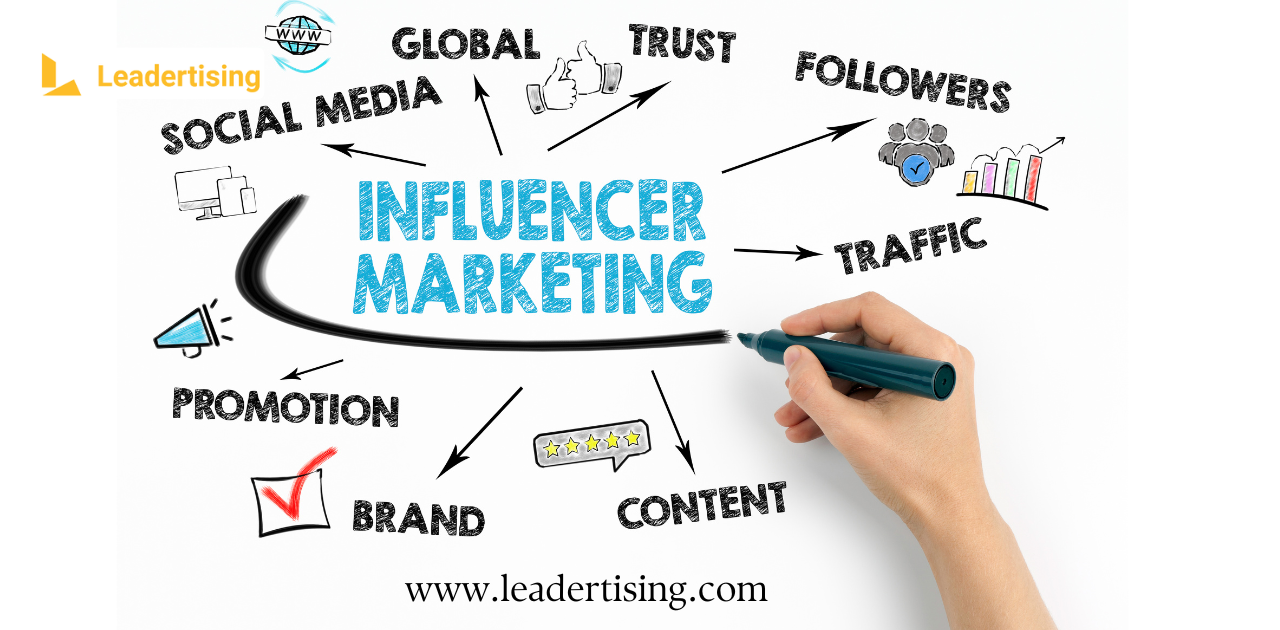Influencer Marketing Research:
Influencer marketing involves collaborating with individuals who have a strong online presence and influence over their followers to promote a brand’s products or services. Unlike traditional celebrity endorsements, influencers are often everyday individuals who have built credibility and trust within their communities through their expertise, knowledge, or unique content.Influencer marketing involves collaborating with individuals who have a strong online presence and influence over their followers to promote a brand’s products or services. Unlike traditional celebrity endorsements, influencers are often everyday individuals who have built credibility and trust within their communities through their expertise, knowledge, or unique content.
These influencers can be categorized into different tiers:
- Nano-influencers (1,000 – 10,000 followers): Typically, everyday social media users with highly engaged and loyal audiences.
- Micro-influencers (10,000 – 100,000 followers): They tend to have niche audiences and often deliver higher engagement rates compared to larger influencers.
- Macro-influencers (100,000 – 1 million followers): These influencers have wide reach and are ideal for spreading brand awareness.
- Mega-influencers (1 million followers): Typically celebrities or internet personalities with massive global followings.
Some of the most Popular Influencer Marketing Agencies In pakistan are:
- Leadertising Agency
- IA Solutions
- Mj Innovators
- ArtPro Digital Marketing Agency
The Latest Influencer Marketing Trends In Pakistan And The Latest Lead Generation Tools:
- Click Analytics
- Modish.io
- Collabstr
- Buzzsumo
- Hype Auditor
Top 10 Influencer Marketing Experts In Pakistan 2025:
- Fakhar Zaman
- Humza Mujeeb
- Huzaifa Mujeeb
- Husnain Waris
- Talha Faraz
- Muhammad Rashid
- Muhammad Sajid
- Muhammad Usman
- Muhammad Salman
- Muhammad Hammad
Key Elements of a Successful Influencer Marketing Campaign:
- Clear Goals and Objectives
- Target Audience Identification
- Influencer Selection
- Creative Brief
- Engagement and Authenticity
- Content Diversity
- Tracking and Analytics
- Compliance and Disclosure
- Budgeting
- Long-term Relationships
Conclusion:
Influencer marketing is no longer just a trend. It has become an essential part of modern digital marketing strategies. By partnering with the right influencer ,brands can create authentic, engaging content that resonates with their target audience and drives real business results. With the right approach ,Influencer marketing can not only increase brand awareness but also foster long -lasting relationships with consumers in todays digital first world.
1. What is influencer marketing?
Influencer marketing is a type of social media marketing that involves collaborating with individuals (influencers) who have a dedicated and engaged following on social media platforms. These influencers promote a brand’s products or services through authentic and often personalized content, helping brands reach specific audiences.
2. How do I choose the right influencer for my brand?
- Relevance: The influencer should have an audience that aligns with your target demographic.
- Engagement Rate: Look beyond follower count and analyze how actively the influencer’s audience engages with their content.
- Authenticity: Ensure the influencer’s values and content style align with your brand’s mission and image.
- Content Quality: Consider the type of content they produce and whether it fits the tone of your brand.
3. What are the different types of influencers?
- Nano-influencers : Have a smaller but highly engaged community.
- Micro-influencers : Specialize in a niche with a highly interactive audience.
- Macro-influencers : Have broader reach but may not offer as much engagement as micro-influencers.
- Mega-influencers : Typically celebrities or internet personalities with massive reach.
4. How much does influencer marketing cost?
The cost of influencer marketing varies greatly depending on the influencer’s follower count, engagement rate, platform, and type of collaboration. Influencers may charge anywhere from $100 to $10,000+ per post, while some work on affiliate commissions or receive free products in exchange for their promotions. Nano- and micro-influencers tend to be more affordable, while mega-influencers charge premium rates.
5. What platforms are best for influencer marketing?:
- Instagram: Ideal for visual content like photos, Stories, and Reels. It’s popular for beauty, fashion, and lifestyle brands.
- YouTube: Best for long-form video content like product reviews, tutorials, and vlogs.
- TikTok: Known for short, viral videos and is great for engaging younger audiences.
- Twitter (X): Useful for quick, real-time interactions and influencer-driven campaigns.
- LinkedIn: Effective for B2B campaigns targeting professionals and industry thought leaders.
6. What are the benefits of influencer marketing?
- Authentic Engagement: Influencers have a loyal audience that trusts their opinions, making their recommendations more effective.
- Targeted Reach: Brands can reach highly specific demographics based on the influencer’s niche.
- Content Creation: Influencers produce high-quality, engaging content that brands can leverage.
- Boosted Credibility: A trusted influencer’s endorsement lends credibility to your brand.
- Cost-Effective: Compared to traditional advertising, influencer marketing often delivers better ROI, especially for small businesses.
7. How do I measure the success of an influencer marketing campaign?
- Engagement Rate: Likes, comments, shares, and saves on the influencer’s posts.
- Click-Through Rate (CTR): How many people clicked on a link provided by the influencer.
- Conversions/Sales: The number of sales or sign-ups driven by the campaign.
- Impressions/Reach: How many people saw the content.
- ROI: Calculate the return on investment by comparing campaign costs to the revenue generated.
8. Do influencers need to disclose sponsored content?
Yes, influencers are required by law to disclose when a post is sponsored. This is typically done by using hashtags like #ad or #sponsored, or through platform-specific tools that clearly label the post as paid content. These disclosures help maintain transparency and build trust with the audience.





Anastasia
April 12, 2025I’m extremely inspired together with your writing talents as smartly as with the
layout in your blog. Is this a paid subject or did you modify it your self?
Anyway keep up the excellent quality writing, it is uncommon to look a nice blog like this one today.
Instagram Auto follow!
Here is my blog post :: Lemlist
phspin
August 20, 2025Interesting read! Understanding betting patterns is key, and platforms like phspin vip make accessing diverse games-even live dealer options-super convenient for Filipino players. Localized payment options are a huge plus too!
saklaking
August 25, 2025That’s a solid analysis of recent race results! Considering secure platforms, I’ve been checking out sakla king app for easy deposits & betting. KYC seems thorough, which is reassuring for online gaming! Good insights here.
AI Tools
December 3, 2025Finding quality AI tools can save hours of research, and platforms like tyy.AI make that easier. Their AI Tax Assistant is a great example of focused, practical solutions for real-world problems.
56bets
January 15, 202656bets is a new one for me. Not a bad interface. Depositing was easy enough. Give her a whirl, you might get lucky: 56bets
dabetlive
January 18, 2026Dabetlive, eh? Gave them a go the other day. Not a bad experience, to be honest. The live dealers were friendly and the interface is easy to use. Worth checking out if you’re looking for some live action. Get started here: dabetlive
okebet15
February 9, 2026Trying my luck at okebet15 for the first time. Wish me luck! Maybe this works out okebet15
ok3655vn
February 21, 2026If you’re in Vietnam, ok3655vn is a solid choice. Tailored for the local market and plenty of betting options. Give it a try ok3655vn